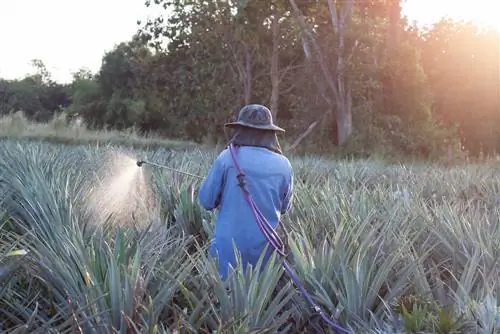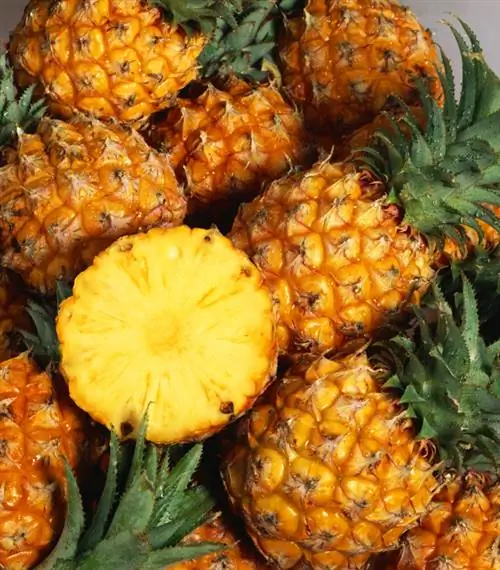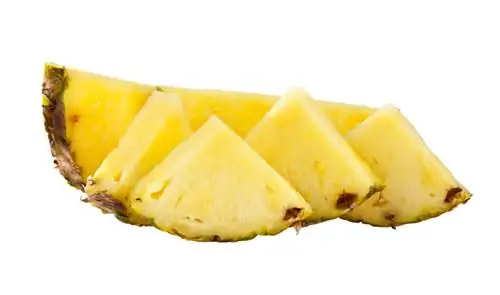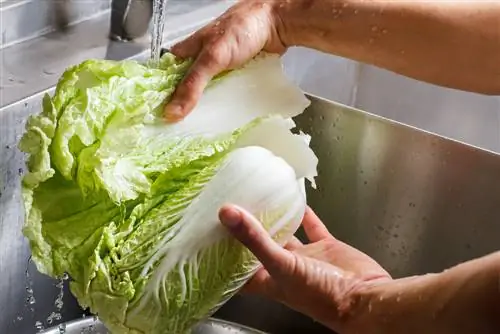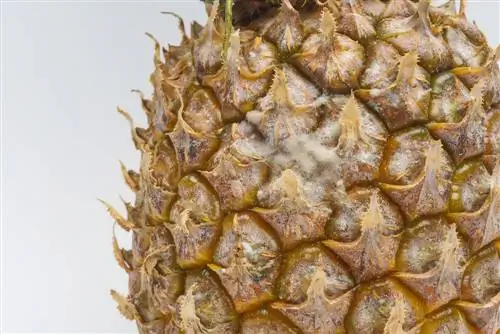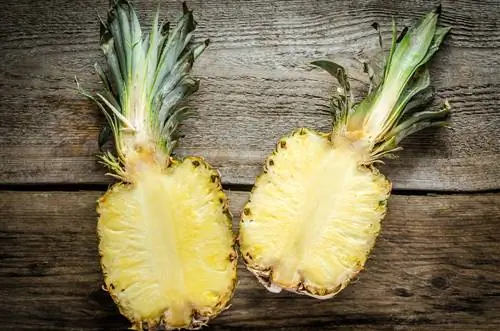- Author admin leonars@hobbygardeners.com.
- Public 2023-12-16 16:46.
- Last modified 2025-01-23 11:22.
More and more people are trying to avoid pesticide contamination when buying fruit. However, the pineapple is usually not as heavily polluted as other plants.
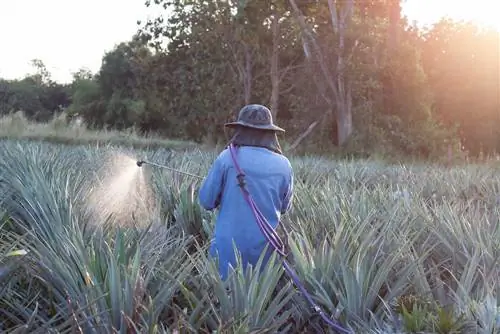
How can I avoid pesticides on pineapple?
Pineapples are usually not heavily contaminated with pesticides compared to other plants. To avoid pesticide contamination when buying pineapple, it is recommended to prefer organically produced fruits and pay attention to the condition of the pulp.
How contaminated is the pineapple with pesticides?
The pineapple is usuallynot heavily contaminated with pesticides. Herbs and grapes are affected by pesticides much more often than pineapples. Surveys here often measured much greater levels of stress. Different factors play a role in the exact exposure to pesticides. These include, for example:
- the susceptibility of a plant to pests
- keeping the plant in monoculture
- the applicable requirements in the country of manufacture
What pesticides are used in pineapple production?
FludioxonilandEthephon were sometimes found in samples. In general, however, there are a wide variety of pesticides that are used to treat tropical fruits. Fludioxonil is a fungicide that specifically works against the growth of mold. Since pineapples mold quite quickly, some producers treat the fruit with this product to prevent it.
How do I avoid pesticides when buying pineapple?
By buying fruits fromorganic production you can avoid severe stress. If the pineapple is certified organic and meets the strict regulations applicable in Germany, the contamination of the fruit is usually lower.
Tip
Note the condition of the pulp
An untreated pineapple cannot be stored for a long time. Buy the fruit when it is ripe and look out for any unusual changes in the flesh. It's not just the consumption of pesticides that is harmful. Eating spoiled food can also cause discomfort or even be harmful to your he alth.

